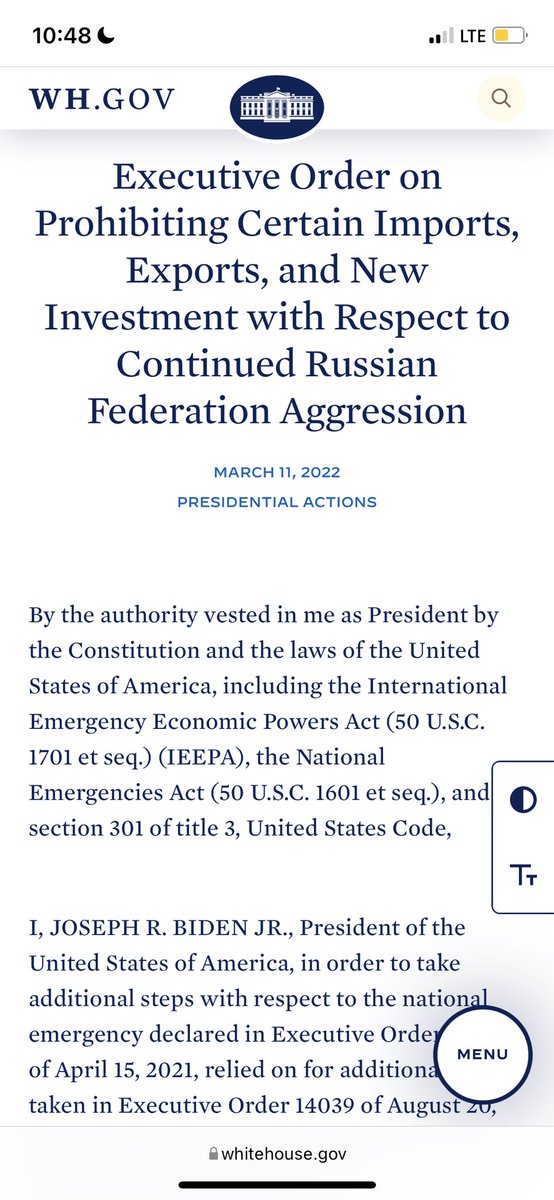
As #TikTok's CEO is being grilled by the US House Committee on Energy and Commerce, it's time to cut through the noise on what the issues are with TikTok and why the USG, through #CFIUS, seems trending toward a force divestiture.
First, I cannot disclose anything about this transaction that I learned while working on CFIUS matters in the USG. Everything on this thread is based on information that is publicly available through news reporting.
The issues with Tiktok is two-fold – data security and the ability to manipulate the algorithm for propaganda. I wrote an explainer about this in the Washington Post back in 2020: washingtonpost.com/politics/2020/…
The #Trump administration tried in August 2020 to do two things: 1) ban the app through an #IEEPA-based executive order and 2) require Chinese-based #ByteDance to divest from the U.S. business of TikTok, through #CFIUS authorities
The IEEPA-based ban was blocked by courts on first amendment grounds. The CFIUS divestment disorder languished beyond the Trump administration, and the USG and TikTok have been negotiating terms of a divestment or mitigation terms ever since.
TikTok is now trumpeting “Project Texas” as a way to deal with data security issues. However, the problem is that such a mitigation agreement would place the burden on third party monitors to make sure TikTok doesn’t insert malicious code that violate mitigation terms.
For more on Project Texas, see here: lawfareblog.com/project-texas-… and also
But, the structure of Project Texas is a problem because TikTok has a long history of doing things it’s not supposed to do, and only changing course when it gets caught. This includes inappropriate collection of device data and violation of rules designed to protect minors.
For example: theverge.com/2020/8/11/2136…
Here's an example from the UK: nytimes.com/2022/09/26/tec…
In order to approve a mitigation deal, the USG has to be confident that the terms are effective at mitigating risk, monitorable, and enforceable. In the absence of trust that TikTok will be a good faith actor, moving forward with mitigation is problematic.
#CFIUS routinely considers whether parties when contemplating mitigation, and patterns of violating laws and/or Apple/Android terms of service do not inspire confidence that TikTok would be a trustworthy partner in a mitigation agreement
Reporting suggests that the Biden administration is pushing for ByteDance to divest from TikTok or for TikTok to go public through an IPO. This would be the best option, IMO. TikTok has 150m US users and because it’s a private company it doesn’t have to disclose much information
If #TikTok went public, it would have many more disclosure requirements that would aid in transparency of such a large and consequential social media platform.
But, the problem is how to enforce divestment. In the past, this hasn’t been an issue because companies have complied with divestment orders. TikTok is not. That’s why there is a threat of a ban. Because, what can the USG do if TikTok ignores the divestment order?
That’s the crux of the problem, and what I’m looking for is whether courts will allow the USG to enforce its divestment order, which as far as I can tell, is a legal order.
How this plays out will have long ranging implications for the capacity of presidents to use #CFIUS to block transactions that they determine have negative #natsec consequences and for which no reasonable mitigation option exists
So, yes, TikTok has mental health and all other kinds of problems - which is shared by other platforms as well - but what sets TikTok apart is 1) the scale of its data collection, 2) the PRC's ability to influence and direct its decisions, . . .
3) the inability of anyone to really know if the PRC takes data from TikTok; 4) a pattern of corporate decision making that makes it highly unlikely that the company would comply in good faith with a mitigation agreement.
I hope that this thread helps cut through the noise to focus on the central problem, and what is at stake for the USG's ability to respond to cross border investments that create national security risks. fin.
• • •
Missing some Tweet in this thread? You can try to
force a refresh






